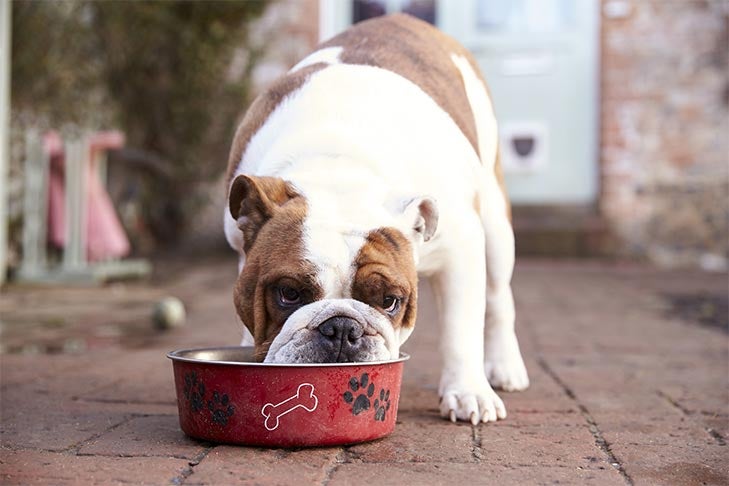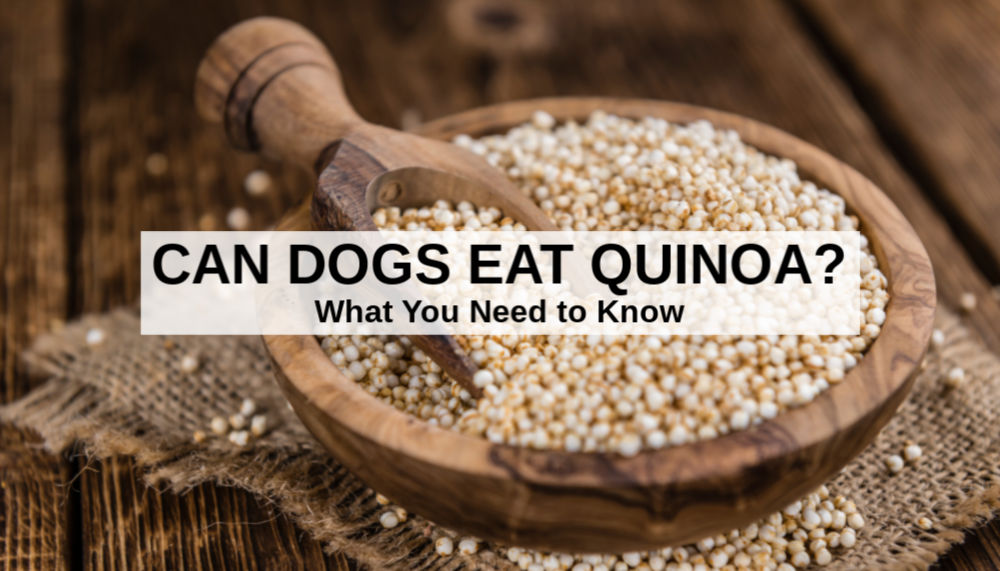
Dogs are naturally curious creatures and tend to explore and taste things they find on the floor. As responsible pet owners, it’s important for us to ensure that what we feed our furry friends is safe and healthy for them. One food item that has gained popularity in recent years is quinoa, a nutritious grain-like seed that has become a staple in many human diets.

Credit: spoiledhounds.com
Is Quinoa Good for Dogs?
When it comes to considering quinoa for dogs, it’s essential to understand its nutritional benefits and any potential risks. Quinoa is packed with essential nutrients such as protein, fiber, and various vitamins and minerals. This nutrient-rich profile makes it a valuable addition to a dog’s diet, offering a healthy source of carbohydrates that can provide them with sustained energy.
Unlike typical filler ingredients found in some commercial dog foods, quinoa is a complex carbohydrate that can offer a more wholesome nutritional profile for your canine companion. This can be especially beneficial for dogs with allergies or sensitivities to common grains like corn, wheat, or soy.
How Much Quinoa Can Dogs Eat?
Although quinoa can offer health benefits for dogs, it’s important to introduce it to their diet gradually. Start by feeding small amounts and monitor how your dog reacts to it. If your dog shows no signs of allergic reactions or gastrointestinal distress, you can gradually increase the serving size.
According to veterinary experts, a safe guideline for feeding quinoa to dogs is up to one-quarter cup per day for a medium-sized dog. However, every dog is different, so it’s crucial to observe your pet’s response and adjust the portion accordingly. As always, consulting your veterinarian before making significant changes to your dog’s diet is recommended.
Benefits of Including Quinoa in a Canine Diet
Quinoa offers a range of benefits when included in a dog’s diet. Here are some of the advantages:
- High in protein, which supports muscle development and overall health
- Rich in fiber, promoting healthy digestion and bowel regularity
- Contains essential vitamins and minerals, contributing to overall well-being
- Low glycemic index, helping to regulate blood sugar levels
- Gluten-free, ideal for dogs with grain allergies

Credit: blog.healthypawspetinsurance.com
Can Dogs Be Allergic to Quinoa?
While quinoa is generally safe for dogs, there is still a possibility of allergic reactions, although they are rare. Symptoms of a quinoa allergy in dogs may include gastrointestinal upset or severe diarrhea. When introducing quinoa to your dog’s diet, closely monitor for any adverse effects and consult your veterinarian if you have any concerns.
Frequently Asked Questions On Can Dogs Eat Quinoa?
Is Quinoa Better For Dogs Than Rice?
Quinoa is a nutritious complex carbohydrate source, providing dogs with steady clean energy. It’s a healthy alternative to rice.
How Much Quinoa Can A Dog Have?
Dogs can eat quinoa in moderation. If your dog has had quinoa before without any negative reactions, you can feed them up to one-quarter cup per day. Quinoa is a nutritious source of complex carbohydrates that provides steady energy for your furry friend.
However, always introduce new foods gradually and monitor for any digestive issues.
Are Dogs Usually Allergic To Quinoa?
Dogs are not usually allergic to quinoa; it can be a safe, nutritious source of complex carbohydrates for them.
What Kind Of Quinoa Is Best For Dogs?
The best kind of quinoa for dogs is white or red quinoa, as they are rich in nutrients, vitamins, and protein, providing your furry friend with a healthy dietary option.
Conclusion
Overall, quinoa can be a nutritious addition to your dog’s diet, offering a range of essential nutrients and health benefits. When fed in moderation and introduced carefully, quinoa can provide your dog with a wholesome and balanced diet. However, it’s important to be mindful of your individual dog’s tolerance and any specific dietary needs they may have.
As with any dietary changes, it’s recommended to seek advice from your veterinarian to ensure that the food you are considering for your dog aligns with their specific nutritional requirements and overall health. By being diligent and observant, you can make informed decisions to keep your furry friend happy, healthy, and thriving.
